10 items you can take to the tip – and 5 you absolutely can’t
Everything you need to know about visiting the dump
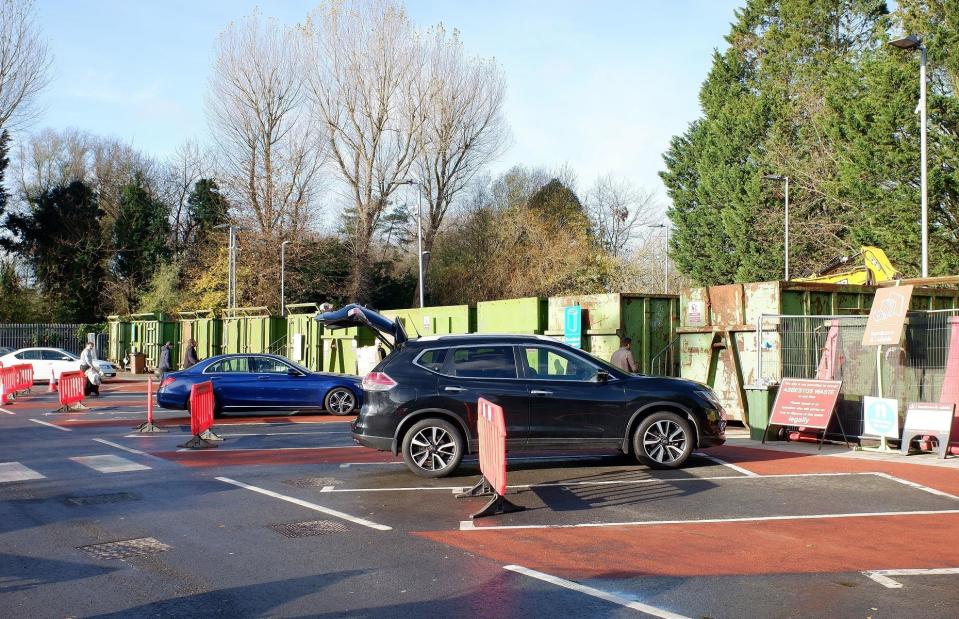
Peter_Fleming / Shutterstock
Summer is great for making home improvements and decluttering, thanks to those extra hours of daylight and (sometimes) better weather. But now the seasons are changing, you might be left not knowing what to do with all the waste left over from your project.
So, to help you work out where your local tip is, what you can – and can't – take there, and when, we've created this definitive guide to cut through all the rubbish.
Read on to find out more...
Why visit the tip?
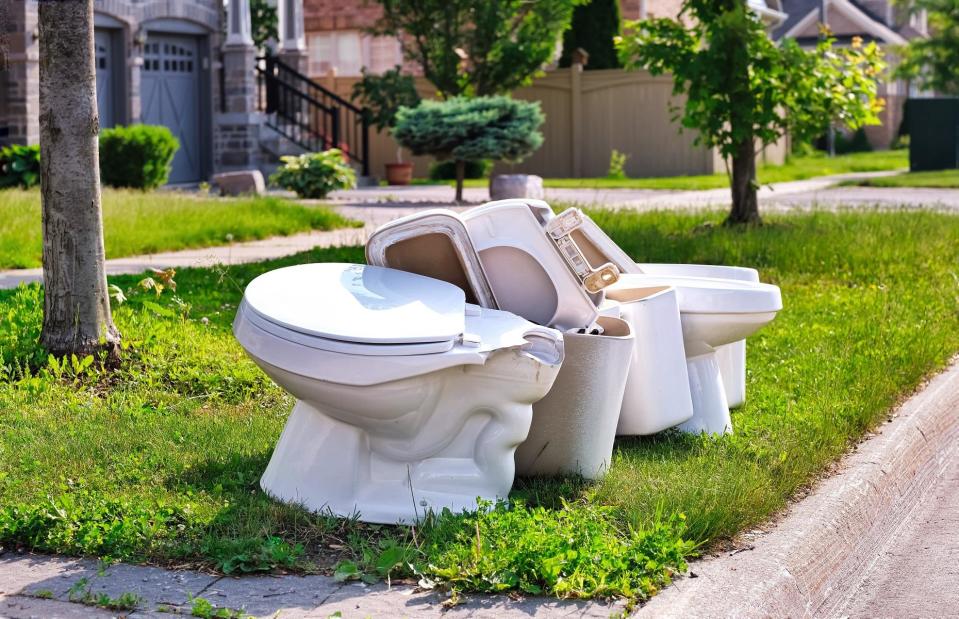
VisualArtStudio / Shutterstock
Some household waste is too big and bulky for your weekly refuse collection team to take, which is why many local councils offer a kerbside collection service. This means they will pick up any unwanted items, including white goods and garden waste, for a fixed fee. You can book a call-out on your council's website. However, if you have a lot of items that need to be disposed of, or you want to avoid the associated costs, then your local dump – also known as a tip or recycling centre – is the way to go.
How to find your local rubbish tip
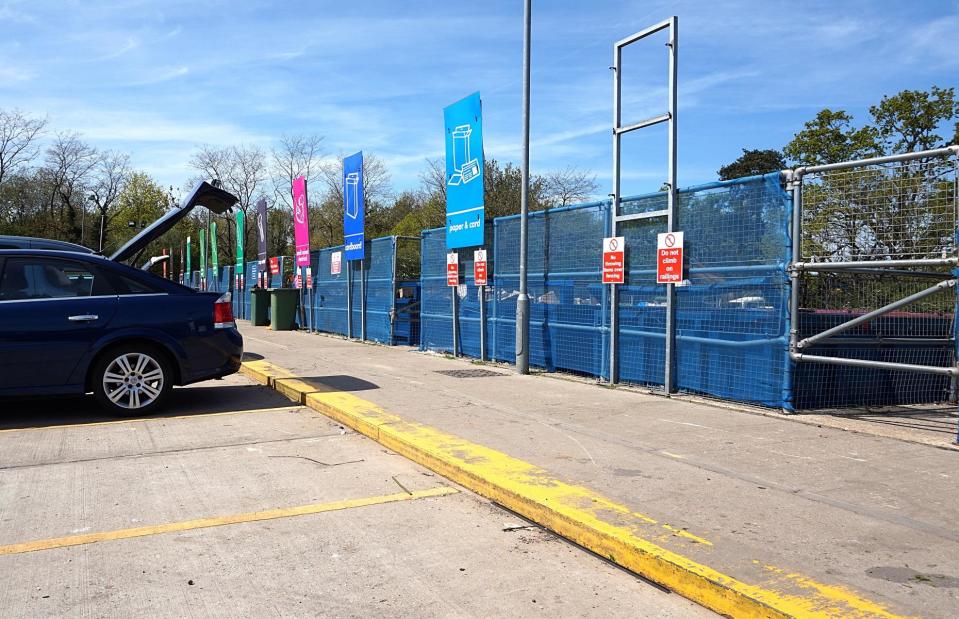
Gary Perkin / Shutterstock
So, how do you find out where your local rubbish tip is? Well, all you need is Recycle Now. This clever website allows you to search for the items you want to get rid of and look for your nearest recycling centre using your postcode. The site will tell you whether or not you can recycle the items at home, provides advice on how to legally get rid of waste and allows you to compare facilities to find the most suitable one for your specific needs.
Do I have to book a time slot to visit the tip?
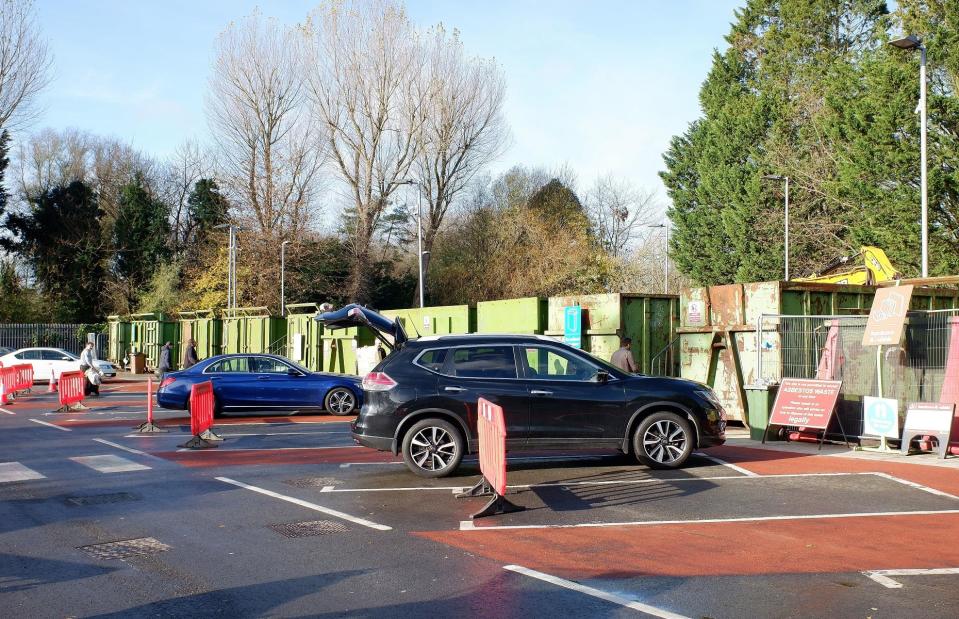
Peter_Fleming / Shutterstock
Not all, but some local councils will require you to book a tip access slot. For example, Kent County Council requires you to book but you can book an on-the-day slot up to one month in advance and attend as many times as you want through multiple bookings. Some authorities, such as Bracknell Forest Council, require you to bring proof of residency with you, such as a driving licence or a council tax bill and they also recommend that you bring a copy of your booking confirmation. Many also require you to register your car in advance, because most centres don't allow vans or commercial vehicles into their facilities – more details on this later. Check your local council's requirements.
Is it free to use my local dump?
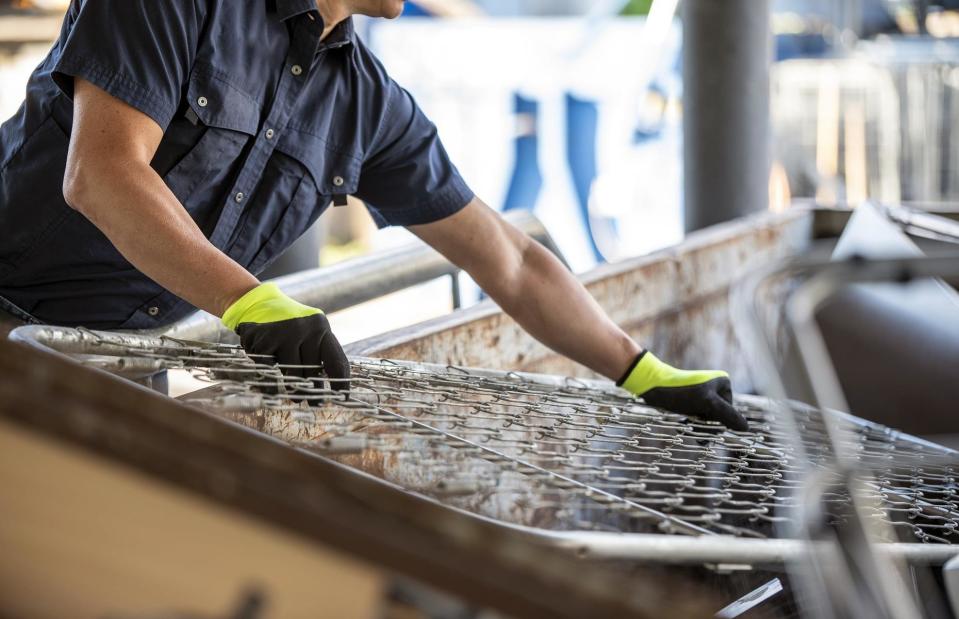
Zaltrona / Shutterstock
According to government figures, fly-tipping costs the economy around £924 million per year, and that's just in England! So, to encourage homeowners to "dispose of their waste in a responsible manner and encourage recycling", the government has implemented new legislation that should come into force later this year. You'll no longer have to pay to get rid of DIY waste and will be able to visit your local recycling point once a week. These changes could save households up to £10 for an individual item. However, your local council might charge you for recycling certain items. For example, Hampshire County Council charges £3 per standard bag of soil and rubble.
Does it matter if I arrive in a car, van or trailer?
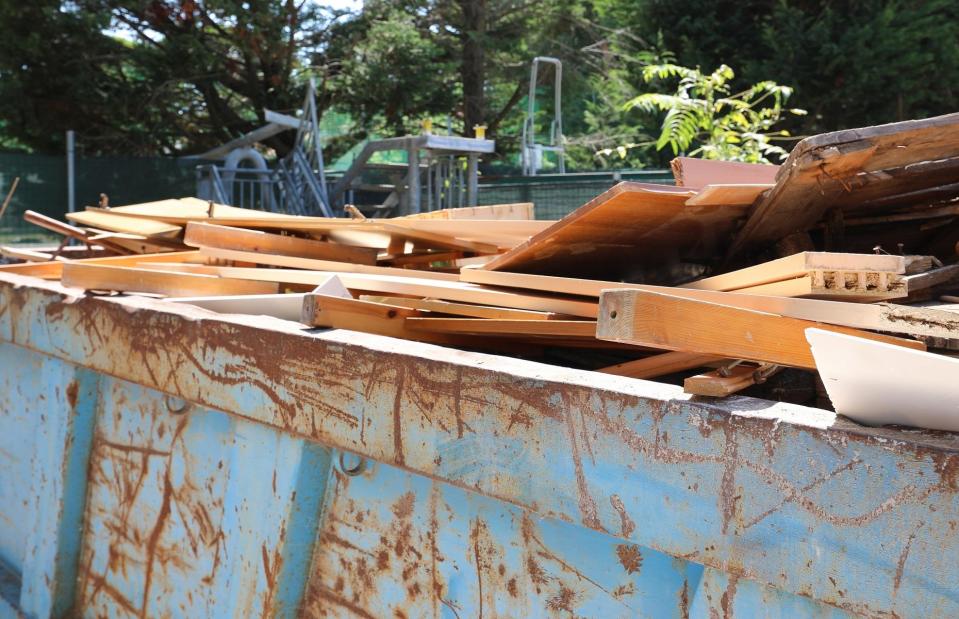
ChiccoDodiFC / Shutterstock
As previously mentioned, you may not be able to access your local tip if you're driving a van or trailer. "Understandably, most waste centres treat vans as commercial vehicles," the experts at TJS Self Drive explain. "Often there will be charges for tradespeople who use the tip regularly, if they are allowed to use the centre at all." Therefore, if you have a van you may need to apply for a recycling centre permit. "All councils operate slightly differently, but many [...] that allow vans will only let them on site if they have the required permit. Permits are usually free to local residents who want to dispose of household junk, but you will need to apply in advance of your trip."
Can I take items from recycling centres?
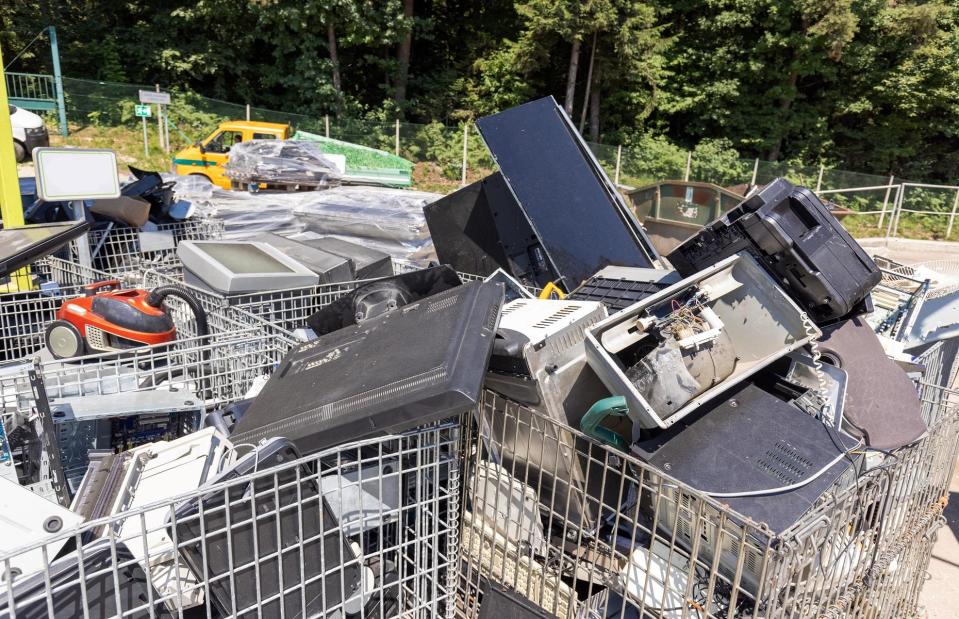
24K-Production / Shutterstock
Thanks to websites like Freecycle and eBay, salvaging items and upcycling forlorn treasures has become extremely popular. But, can you take discarded gems from your local recycling centre? Well, according to Business Waste, in some cases, you'll be welcome to do so, but you should "ask permission from site staff before taking things." Items that pose a safety risk, such as old electrical appliances, may be forbidden since an injury caused by the item could lead to legal action. Also, if the tip deems the item valuable and you take it without their permission, you could even be prosecuted for theft. So, what items are you allowed to take to the tip?
What you can take to the tip: sofas
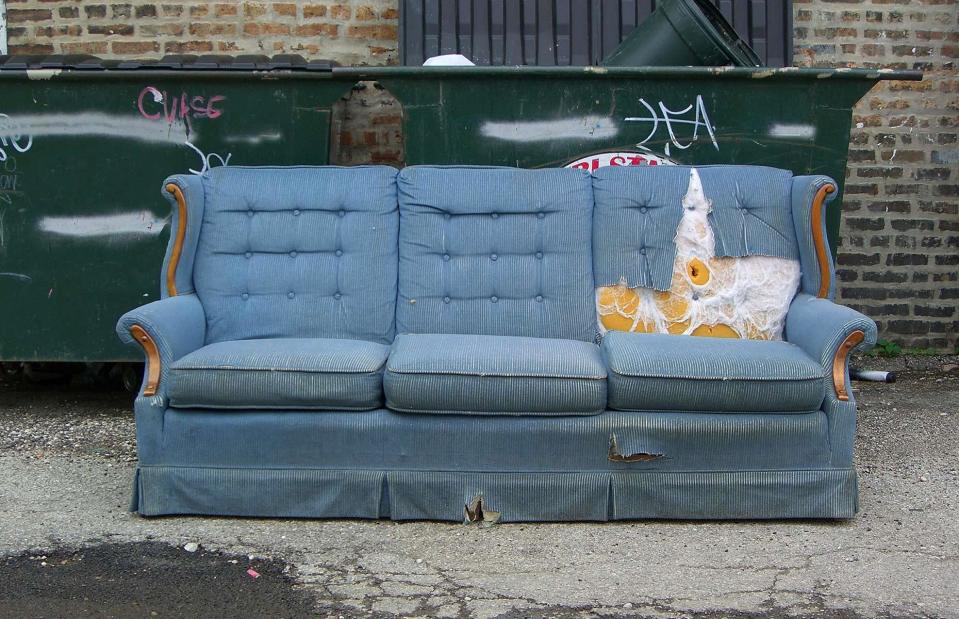
Josh Cornish / Shutterstock
If you've decided it's time for a new sofa, then you may need to get rid of your old one – and there are plenty of options for doing so. While you could give it away or sell it on sites like Facebook Marketplace or Gumtree, you could also donate it to your local charity shop. British Heart Foundation welcomes quality furniture and will even collect it for free. However, if there's no hope for your sofa, your local recycling centre will happily take it off your hands.
What you can take to the tip: carpets
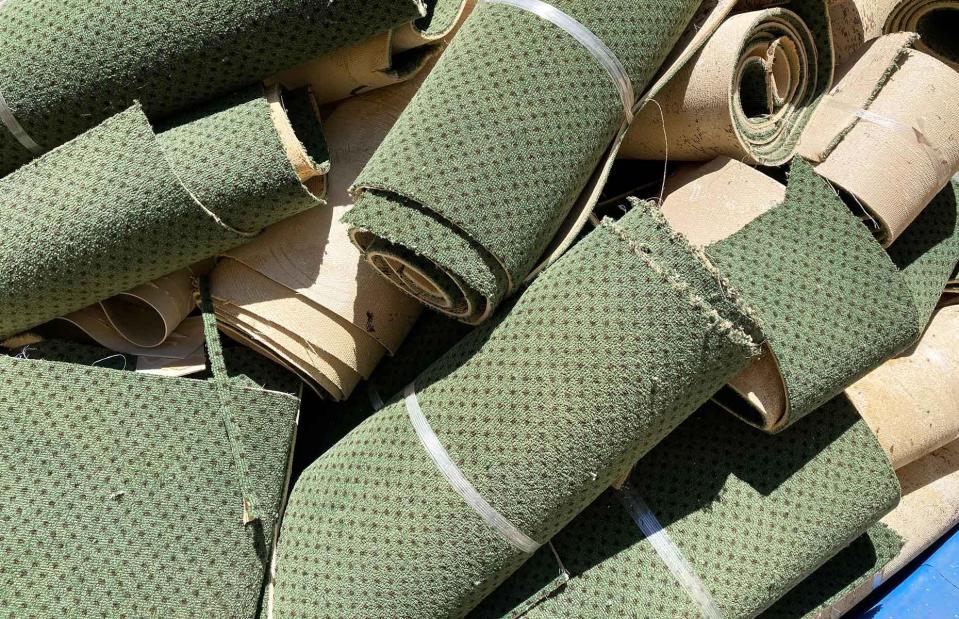
Michael Vi / Shutterstock
The same goes for carpets. If yours is in a sorry state, then the best option is your local dump. However, if your carpet is still in good condition, we recommend listing it on a local auction site, or giving it away to someone who can put it to good use – perhaps someone doing a DIY job who needs a temporary protective cover for their floors? Worth noting is that most charity shops won't accept old carpets and rugs, since they can often be harbouring moths, which can quickly lead to an infestation.
What you can take to the tip: soft furnishings
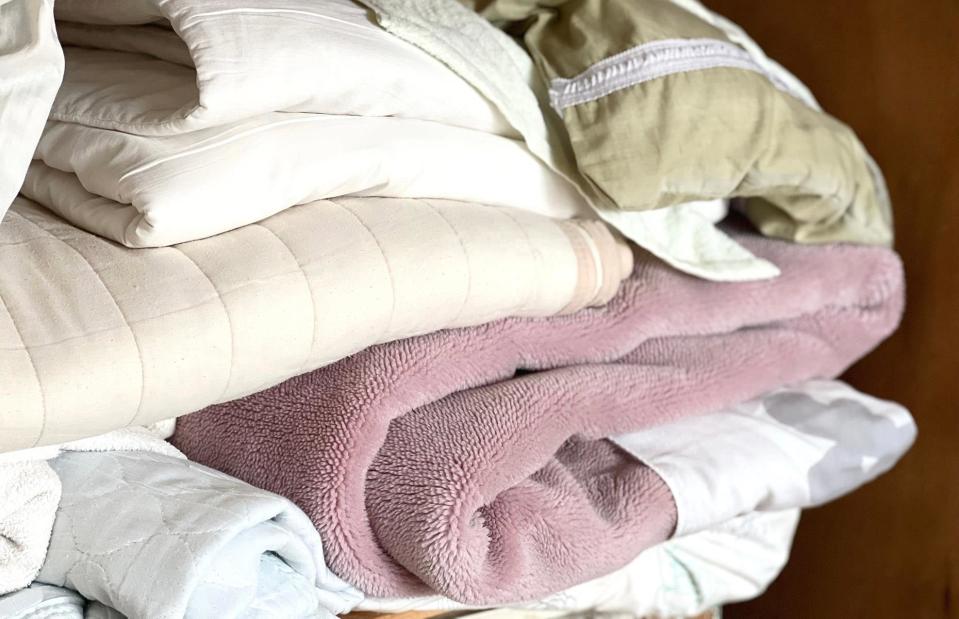
candy candy / Shutterstock
Your local tip will also take soft furnishings, such as curtains, duvets, pillows and cushions. But, as previously mentioned, if your items are in good condition then a trip to your local charity shop is a much more sustainable way of getting rid of your unwanted belongings. Remember, charity shops won't take anything soiled, damaged or that could lead to a pest problem.
What you can take to the tip: small electrical appliances
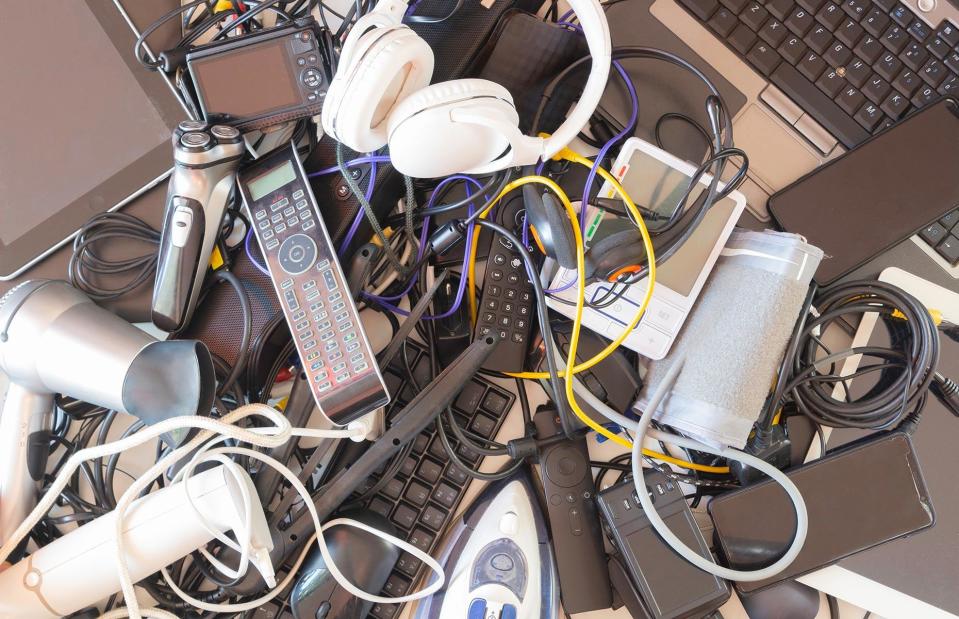
Veja / Shutterstock
Planning on upgrading your electrical appliances? Then you can drop any unwanted ones at your local recycling centre. If they're in good working order and are safe to use, then you could also consider selling your appliances on sites like eBay or even listing them for free on Facebook Marketplace or Freecycle. Again, your local charity shop may also be willing to take them, provided they are in good, working condition. Dedicated Waste Electrical and Electronic Equipment Centres (WEEE) also dispose of old appliances in an environmentally-friendly way.
What you can take to the tip: clothing and textiles
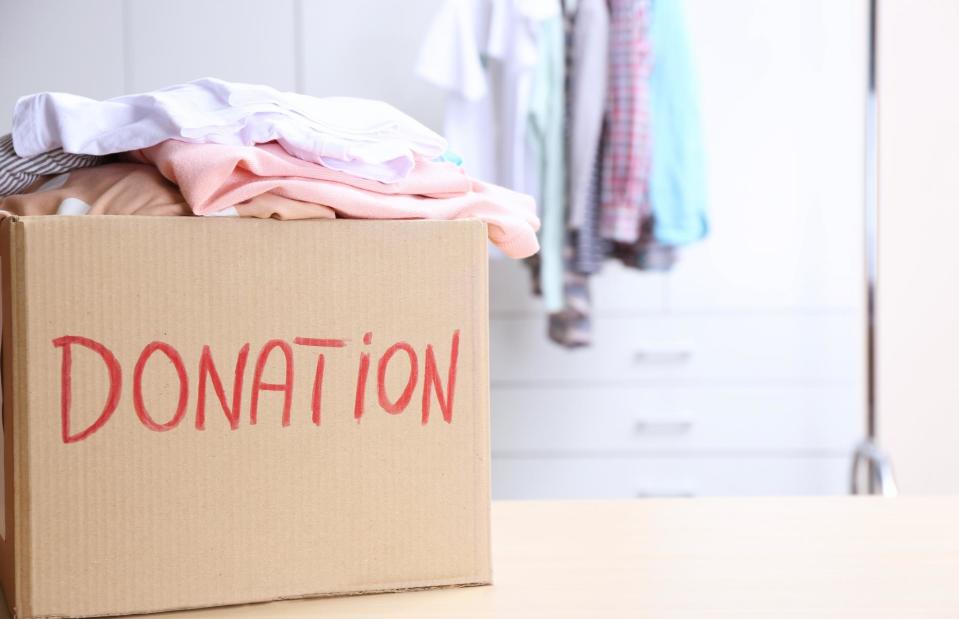
Africa Studio / Shutterstock
While your local dump will take old clothing and fabric scraps, you can also find free recycling bins on streets across the UK. These collection bins usually belong to a charity, which will empty them regularly and either sell the contents in their stores, donate them to countries in need or recycle them. Use the search tool at Recycle Now to find your nearest clothes recycling bin. Around 336,000 tonnes of unwanted clothes are thrown away every year, so recycling them is a great way to minimise the overall impact clothing has on the environment.
What you can take to the tip: paint tins
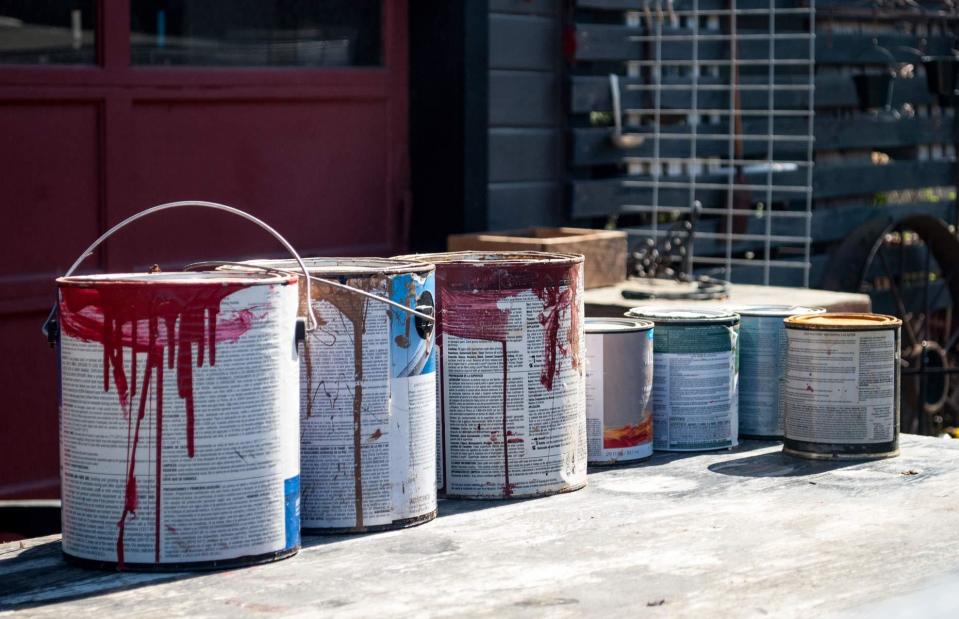
CL Shebley / Shutterstock
If you've just freshened up your interior with a few licks of paint and need to get rid of your half-empty cans, then you can’t just throw them out with your rubbish – it’s against the law. However, your local dump will happily take them off your hands. "Liquid paint is banned from landfill, and your local council won’t accept it," explains Divert. "If you’ve got barely any paint left in a tin, and you’ve left it to dry out, your local household waste recycling plant will almost definitely take your paint tins."
What you can take to the tip: wooden furniture
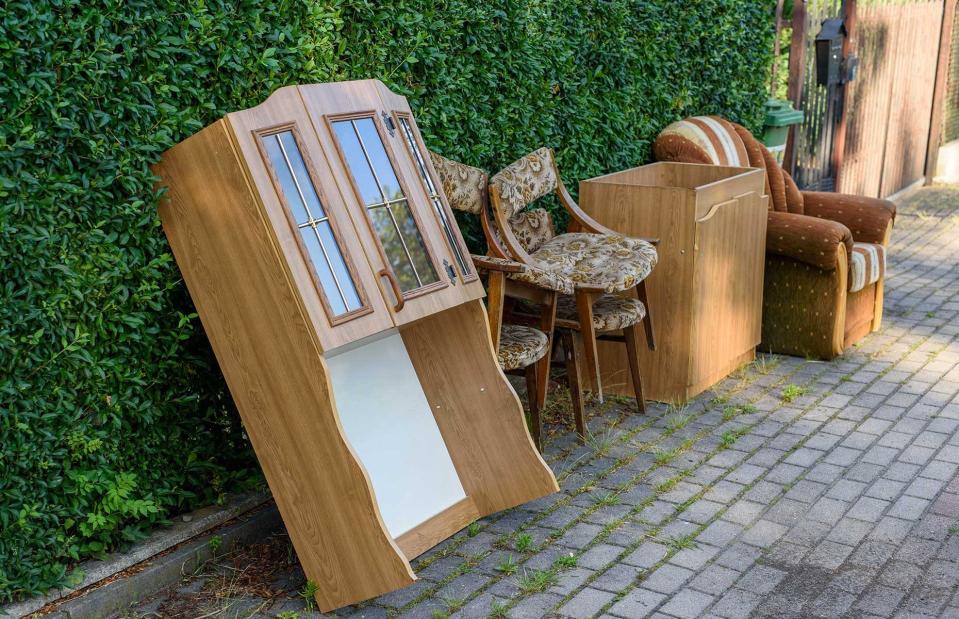
M9K / Shutterstock
Need a furniture upgrade? You can always take your old or broken wooden pieces to the tip. If they're in good condition, they will no doubt rescue them and sell them on. However, with a bit of imagination and elbow grease, you could transform your old furniture into something worth keeping – so don't be too hasty when getting rid. It might be that someone on eBay or Facebook Marketplace will know exactly how to upcycle your unwanted furnishings, too.
What you can take to the tip: green waste
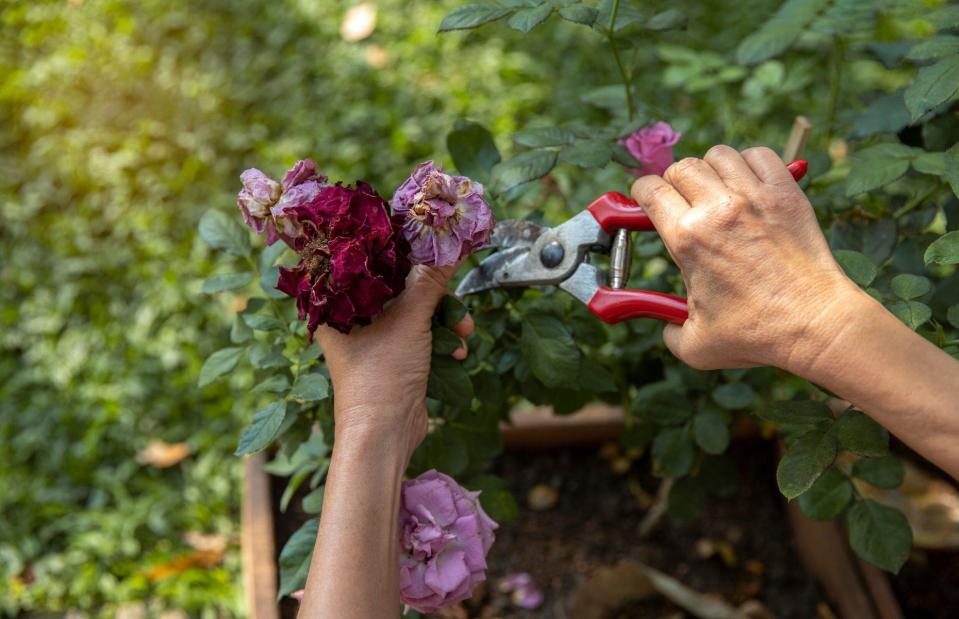
aumnat / Shutterstock
Summer is the perfect time to tackle the garden and give it a facelift, but what should you do with your green waste? Well, while you might have a dedicated wheelie bin for gardening materials, if you find yourself with endless bags then your local tip will be the best place to go. Just remember, tips generally don't take soil. This is because it's "heavy, bulky and messy, and becomes far more problematic once it’s wet," explains Hippo Waste. "Another great idea is to advertise your excess earth on sites such as Gumtree, eBay and Freecycle. You might also find that a neighbour or local farmer wants it for a landscaping project."
What you can take to the tip: mattresses
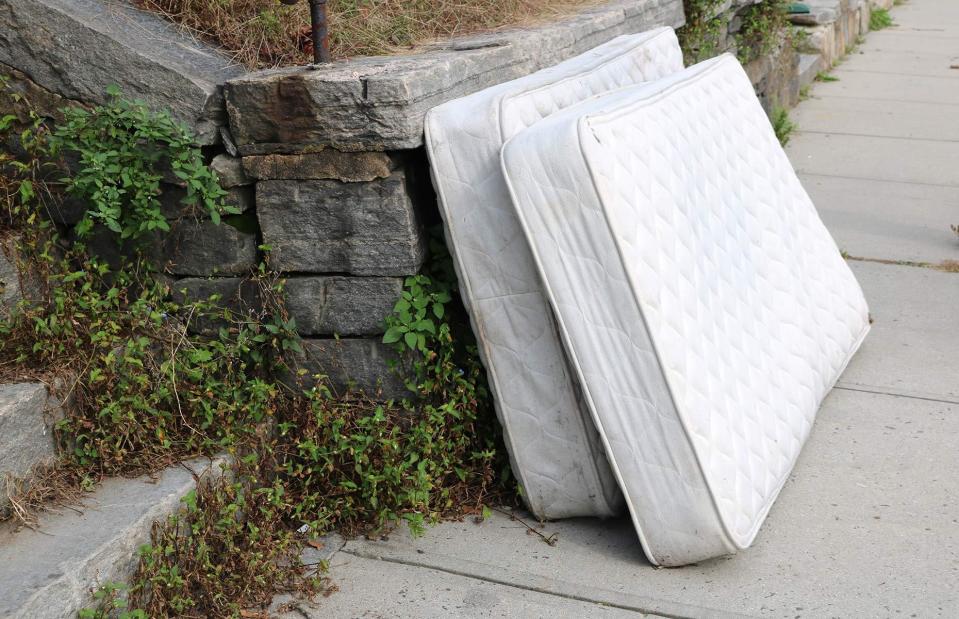
aswphotos134 / Shutterstock
Time for some fresh bedding and a new mattress? If your old one isn't in good enough condition to sell or give away to someone in need, then you can drop it off at your local tip. "Take it to a recycling centre or arrange for the local council or a mattress collection company to come for it," suggests Bedstar. "Hopefully, from there, it will go on to serve a more environmentally friendly purpose." If you can’t fit your mattress in your car, try folding it and tying it with a rope.
What you can take to the tip: printer cartridges
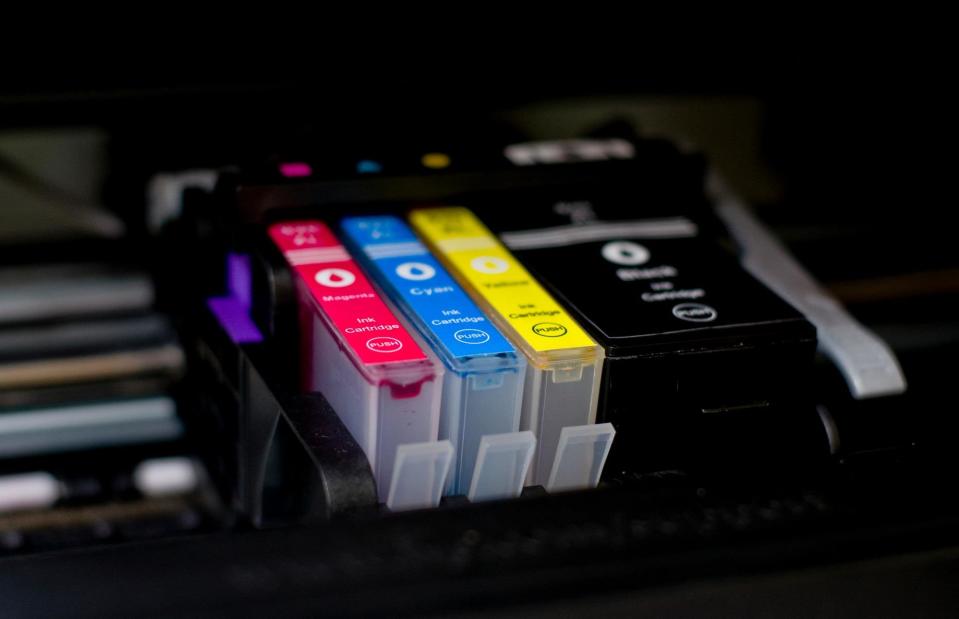
mveldhuizen / Shutterstock
While some printers take refillable cartridges, others don't. Sadly, printer ink and toner cartridges can be "incredibly toxic to human, animal, and plant health," explains Business Waste. Therefore, you need to ensure you dispose of yours safely. Most council facilities will accept old ink cartridges, but it's worth checking in advance. Alternatively, many printing companies offer free recycling services and almost all the materials in an old cartridge can be recycled.
What you can't take to a recycling centre
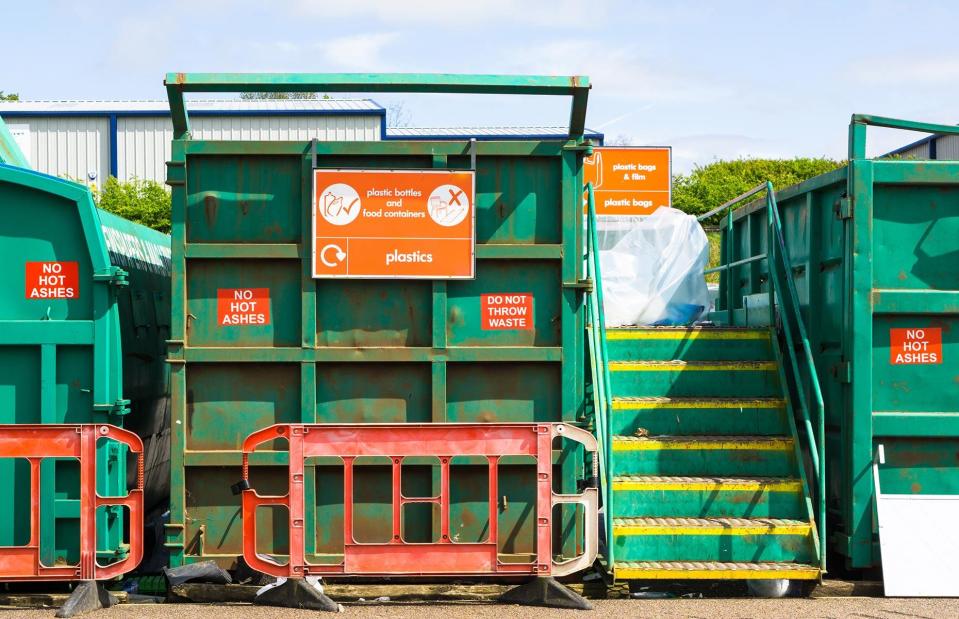
Imran Khan's Photography / Shutterstock
It goes without saying that your local refuse centre won't be able to accept all the items you need to get rid of. While each facility will be different, with varying rules and regulations, pretty much all centres in the UK share a few no-nos...
What you can't take to the tip: fuel/gas cylinders
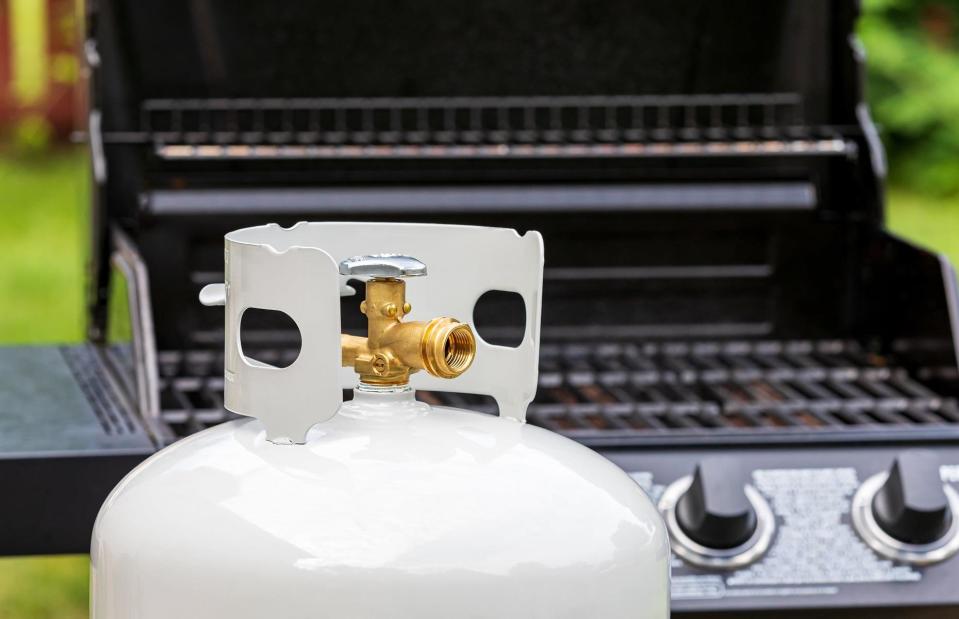
J.J. Gouin / Shutterstock
Used for everything from barbequing to caravanning, fuel and gas cylinders provide portable energy. However, they contain butane or propane in compressed form, which, if mishandled, can lead to fire, explosion, chemical burns, poisoning and cold burns. So, if you have a cylinder you no longer need, the "simplest route is to return it to the company whose name is on the cylinder," suggests Liquid Gas UK.
What you can't take to the tip: asbestos
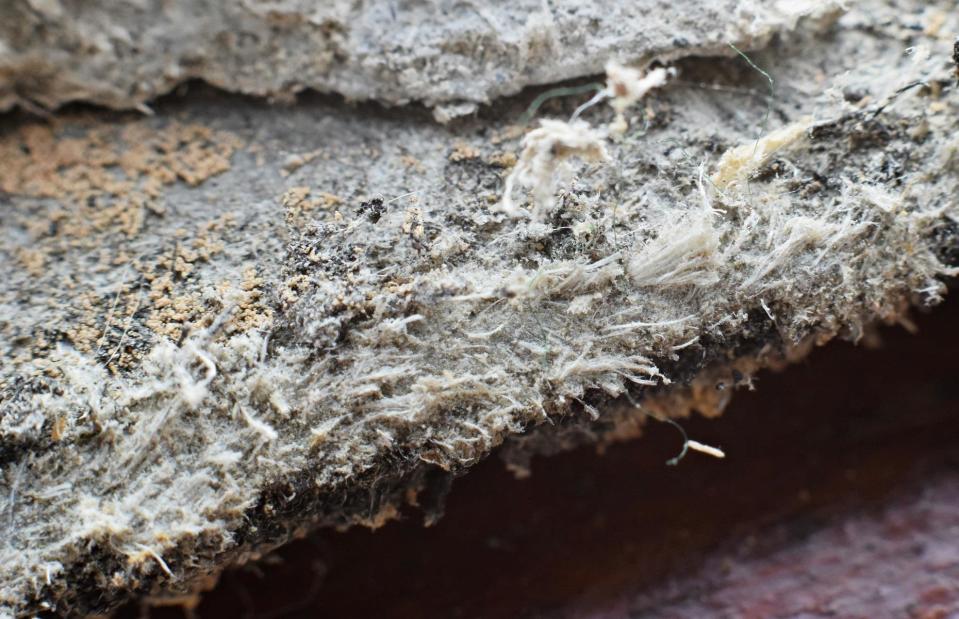
Tunatura / Shutterstock
Up until the 1970s, asbestos was commonly used in homes for things like roofing and insulation. However, in the 1960s it was discovered that this fibrous material was responsible for mesothelioma, a cancer caused by prolonged inhalation of asbestos fibres. Many homes built between 1920 and 1978 will feature asbestos – if they haven't already been renovated. So, you'll need to tackle its removal safely. Due to its hazardous nature, your local tip won't take asbestos so you'll need to call in a specially trained contractor to remove it and dispose of it properly.
What you can't take to the tip: Japanese knotweed
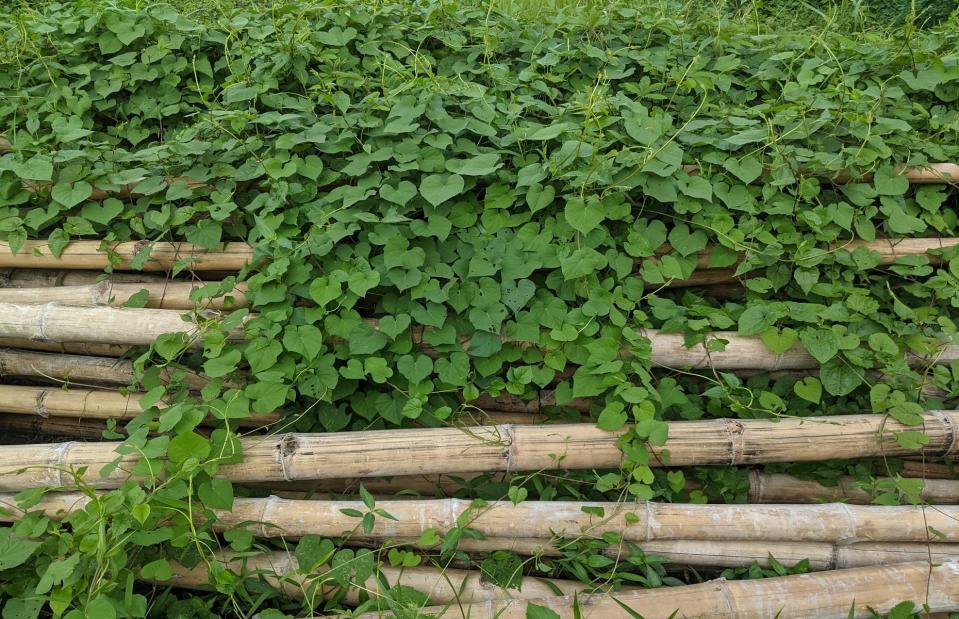
Wirestock Creators / Shutterstock
It's likely you've heard of Japanese knotweed. This invasive, rapidly spreading plant has roots that grow deep underground, causing widespread damage, including to building structures. It can also be tricky and expensive to get rid of. Since it's classed as controlled waste, any parts of the plant must be disposed of at a licensed landfill site. It’s best to employ a specialised Japanese knotweed contractor and ensure that they are registered waste carriers. You can search for a local, vetted contractor using the Property Care Association database. Other invasive plants, such as Himalayan balsam and giant hogweed may also be banned.
What you can't take to the tip: chemical and clinical waste
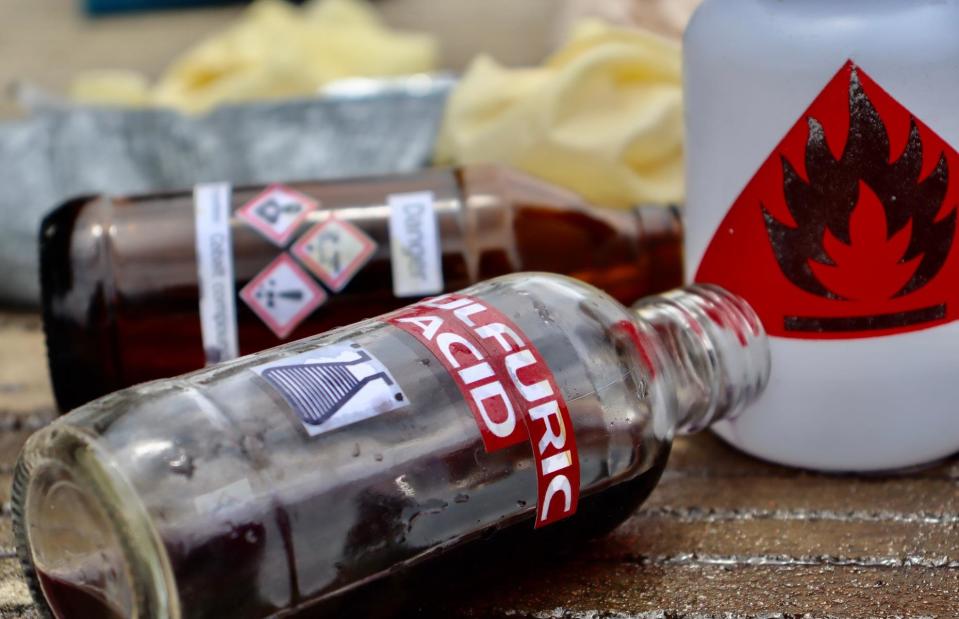
chemical industry / Shutterstock
Another no-no for recycling centres is chemical and clinical waste. For obvious reasons, substances that fall into these two categories can be hazardous not only to humans and animals but to the environment, too. Therefore, they must be disposed of safely. Chemical waste includes car batteries, solvents and pesticides, while household clinical waste includes syringes, swabs, bandages and dressings. Recycle Now suggests contacting your local authority for advice or using its search tool to find your nearest hazardous waste disposal service.
What you can't take to the tip: explosives, fireworks and ammunition
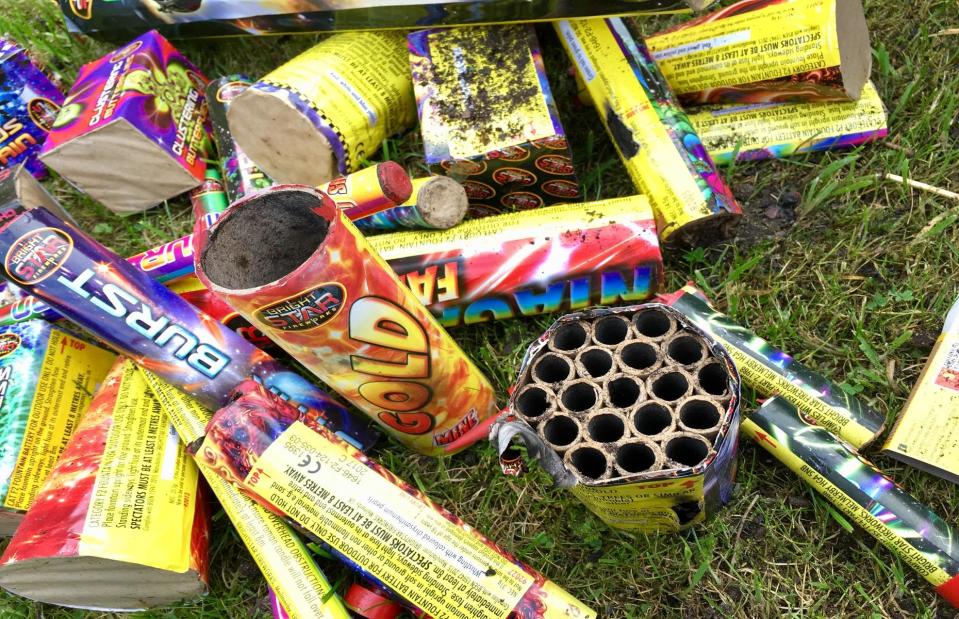
Victoria M Gardner / Shutterstock
This one is fairly obvious. Clearly, fireworks, explosives and ammunition are dangerous and therefore must be disposed of properly. Your local recycling centre won't be equipped to take such items, and you certainly can't put them in your rubbish bin. Each council will offer different advice for the safe disposal of explosives, but it's best to follow all manufacturers' instructions. Hereford & Worcester Fire and Rescue Service also has some excellent guidance on proper firework disposal.
Restricted items
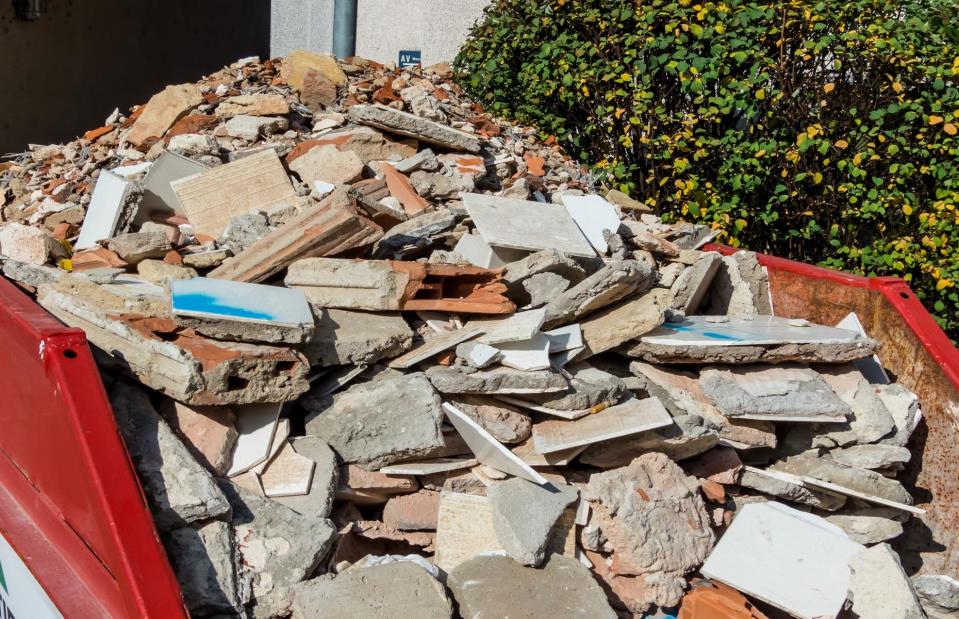
Lisa-S / Shutterstock
Of course, your local recycling centre will enforce its own rules about what is and isn't allowed at its facility. So it's always worth checking online in advance of your visit. Many tips won't accept soil, hardcore building waste like rubble, kitchens or ceramic items such as toilets. Often, tiles are restricted, too, for example, to one car boot load per month. While DIY waste is welcomed, some councils will have different ideas about what this constitutes. For example, Derbyshire County Council won't accept "construction, demolition or replacement of wooden garden structures like sheds, playhouses, fencing or decking".
Alternative waste disposal options
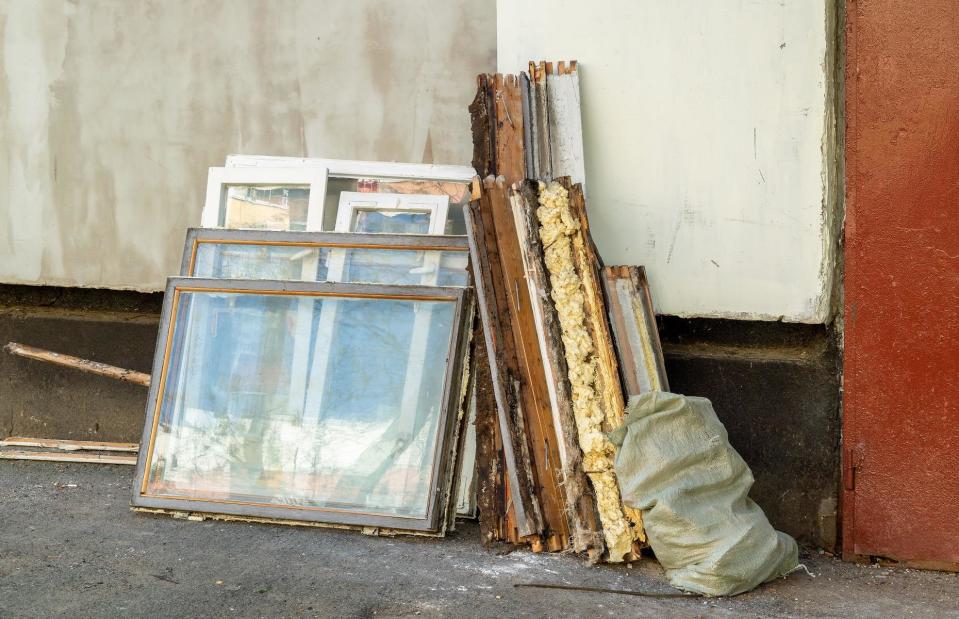
Semiglass / Shutterstock
Having said that, some facilities will accept certain items for a fee. Like Bristol City Council, who will take soil, rubble, concrete and even sanitary ware for £2.90 per bag or item. So, it's always best to have a read of your local council's website for guidance. Alternative options include hiring a skip – especially if you're undertaking a large DIY or renovation project. "Hiring a skip is a convenient and cost-effective option", suggests Hazell & Jefferies. The waste management firm you hire the skip from will then sort out your waste in a responsible manner.
Clever ways to transport stuff to the tip
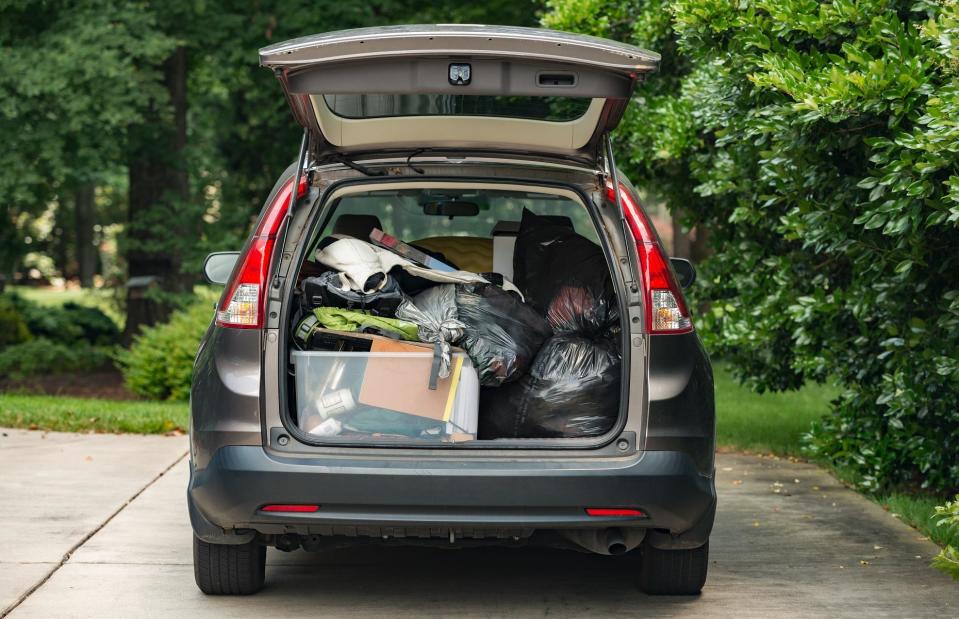
CLS Digital Arts / Shutterstock
If you're set on heading to the tip, then remember to protect your car boot and seats to avoid damage. Small items should be placed in manageable boxes or bags that aren't too heavy, since you often have to climb stairs to pour goods into skips below – think IKEA blue bags or sturdy tubs with handles! For larger items, you can hire a van, just remember to apply for an access permit in advance. Many facilities will have on-site staff, who will be happy to help, but this will be at their discretion and they do have a right to refuse. Nottinghamshire County Council suggests that "weekends and early evenings can become very busy, so if you need help, you may wish to visit on a weekday instead." So, it's always advisable to bring a friend with you, to help with any heavy lifting.
What happens to your items when they go to the tip?
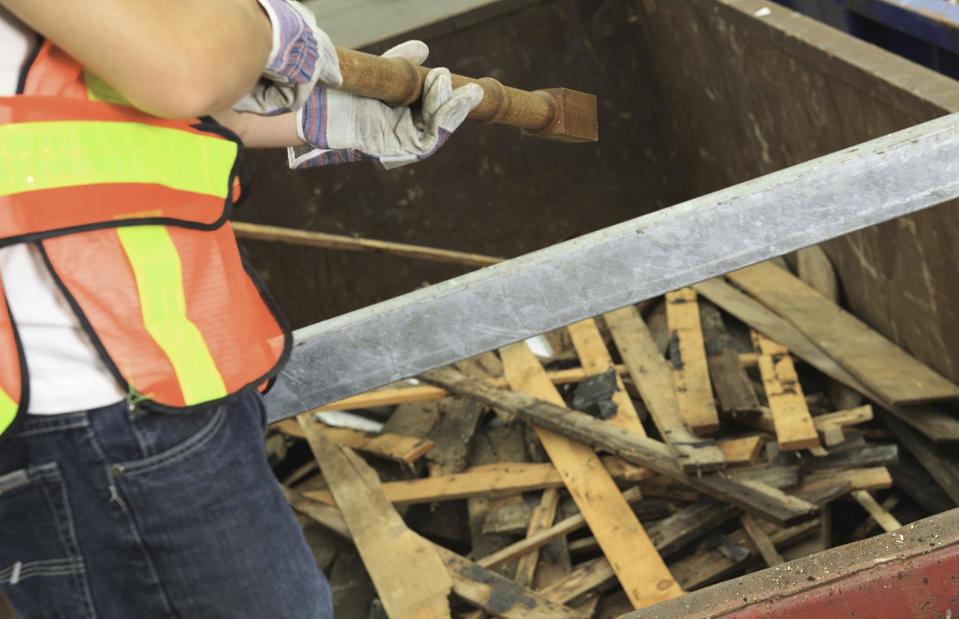
Lopolo / Shutterstock
You might be wondering what happens once you've dropped your unwanted waste off at your local refuse centre. Sending your rubbish to a recycling facility means fewer items will end up in landfill, therefore reducing the impact on the environment. The staff working there will go through everything, ensuring that all materials that can be reused, are. Some items might be sold on, while others will be destroyed or used to make something new. Anything that is unsalvageable could end up going to landfill. This is why it's always best to donate or sell anything that is still usable.


